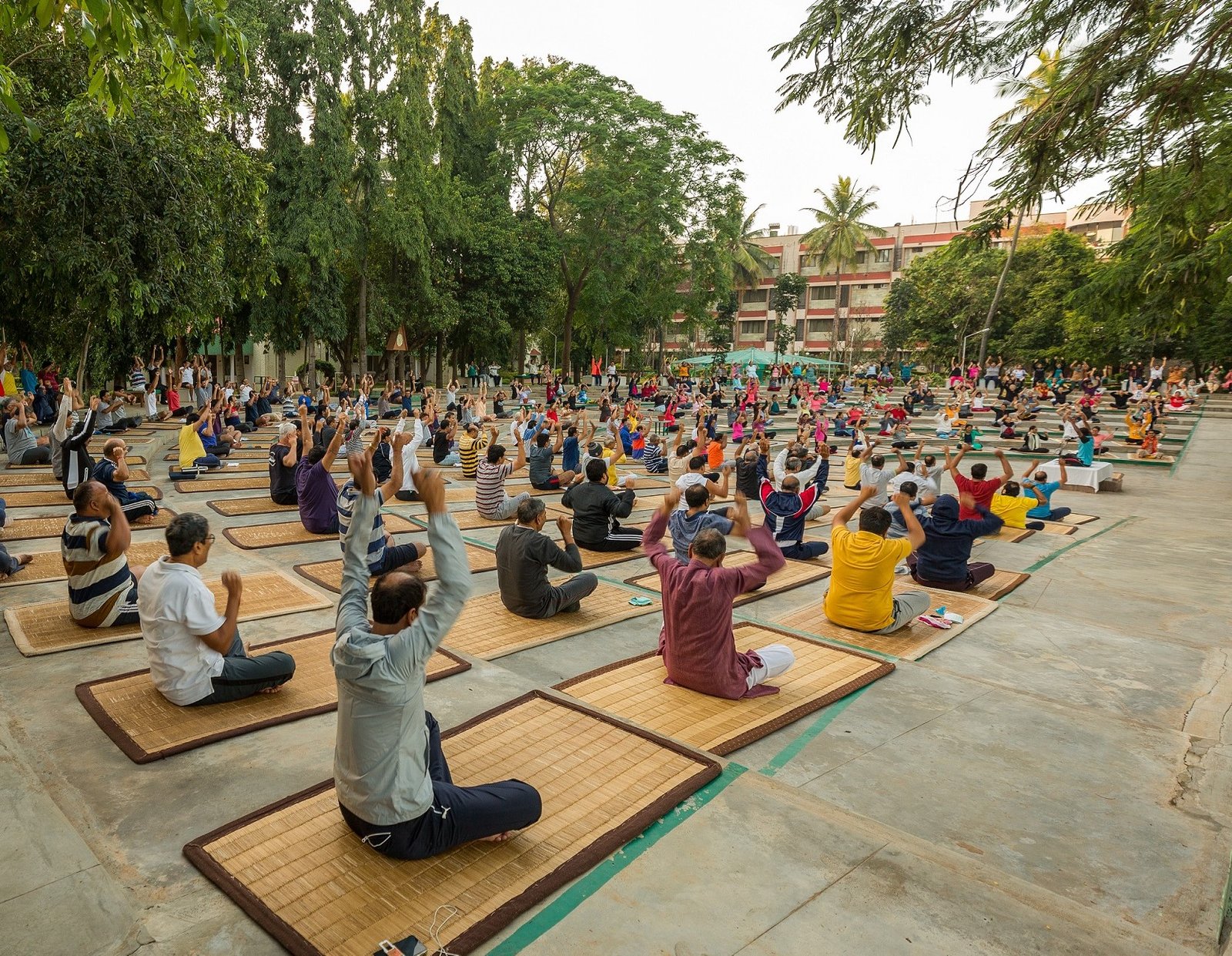Rising incidence of NCDs is turning more people towards Naturopathy: JNI
August 29, 2019 | Thursday | News
An integrated and holistic approach to medicine can significantly lower the burden of lifestyle diseases & their treatment cost
Rising incidence of chronic non communicable diseases and greater awareness on the need for diet and lifestyle management is prompting a new interest in naturopathy based medicine in India.
With as many as 14,000 patients being treated for a variety of diseases, Jindal Naturecure Institute has emerged as a leader in providing alternative medicine in the country.
Non-communicable chronic diseases are currently responsible for more than 61% of the deaths in the country. With modern medicine proving inadequate to offer comprehensive and long lasting solutions to chronic diseases, an increasing number of people are today turning to a drugless herbal approach. This can be gauged by the fact that among the most common diseases for which patients seek treatment at JNI includes Hypertension, Diabetes Type 1 and 2, Obesity, PCOD, Hypothyroidism, Chronic Constipation, Insomnia, Bronchial Asthma, Migraine, osteoarthritis, cervical lumbar spondylitis and dyslipidemia.
In 40 years of its existence, JNI has seen a steady rise in number of patients. Initially, only a small number of patients with knowledge or curiosity about Naturopathy and obesity related issues were visiting JNI, but over time naturopathy's principle of addressing the cause of the disease and not just the symptoms has gained greater value. This approach is Holistic and JNI has over the years documented it with adequate research. While 10 years back, the average number of annual patients visiting the institute was around 6000, it has gone up to 14000 today.
R Raghunath, Sr. Chairman, Jindal Naturecure Institute said, “Adverse side effects, drug resistance, and rising costs of treatment for non-communicable diseases have forced patients to look for alternative systems of medicine, especially since a lot of these conditions do not respond effectively to traditional pharmaceuticals. Patients seek much more than just treatment of symptoms; they want the root cause of their disease to be addressed through naturopathy. More people today prefer a natural approach and this is clearly evident from the increasing number of patients visiting JNI every year. We focus on a drug-less approach, promoting the power of the human body to heal it. We have even had many modern medicine doctors from across the country visiting our Institute, wanting to know how naturopathy can help treat patients suffering from osteoarthritis, diabetes, obesity, depression, rheumatic conditions and insomnia.”
“India is in the middle of a silent public health crisis and naturopathy might help us understand the scope and scale of the crisis. It provides a more expansionist and preventive model of holistic care, countering the reductionist and reactionary approach of pharmacology. Naturopaths treat the root cause of diseases and not just the symptoms. Our approach is more integrated and we take into account the patient’s physical, mental, emotional health, while considering all the social and environmental factors. By taking a more patient-centric approach, we have successfully managed to curtail the progression of NCD symptoms in our patients, and their expectation from naturopathy has increased over time”, he added.
According to the WHO, non-communicable diseases kill over 41 million people annually, with 15 million people between the ages of 30 and 69. Over 85 percent of the premature deaths occur in low and middle income countries. The number is only set to rise due to rapid urbanization, lifestyle changes, and other physiological and environmental factors. Currently, only 27 percent of Indians have health insurance. NCDs require them to make regular visits to the hospital, putting a dent in their pockets and increasing the burden on understaffed primary healthcare centers. The preventive approach of alternative medicine can significantly reduce this health burden.
Notably, WHO urges its member states to consider inclusion of traditional systems of medicine in their national health systems and establish protocols for qualification and accreditation for practitioners of traditional medicine. If the government allots just a small part of its budgeted funds and attention meant for healthcare sector to alternative medicine, the country can have certified institutes of naturopathy and yoga in every state within a short time.
By adopting naturopathy, the states could greatly improve disease prevention mechanism and reduce the pressure on overcrowded hospitals. It would take us one step closer to achieving universal health coverage in line with the United Nation’s Sustainable Development Goals.









